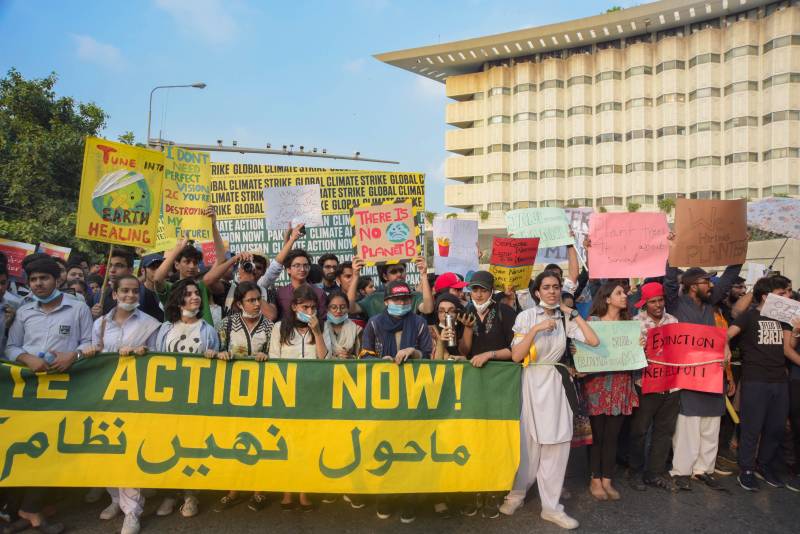More intense and common heatwaves, increasing air pollution, rising sea levels, melting glaciers and most recently, a torrential rain in Karachi, which flooded the most populous metropolitan city of Pakistan.
These are the ominous signs which are showcasing the dire consequences of climate change, and youth across Pakistan came out to march against the government’s lack of effort to tackle the environmental crisis.
Heeding to the call of global teen activist Greta Thunberg, more than 27 cities and towns took part in the protest all over the country, including Mardan, Jhang, Turbat, Kotli, Bagh, Killa Abdullah, Chitral, Ghotki, etc.
The citizen-led initiative was organized by Climate Action Now, which brought out millions of young people out on the streets, joining climate strikes in other countries to protest global warming.
Among the most remarkable thing about the march was the startlingly young age of its leadership.
The march saw thousands of students who flooded out of schools, universities, and workplaces in order to join in what is being termed as the largest climate mobilization drive in the history of Pakistan.
In Lahore, young protestors marched from Lahore Press Club to Al-Hamra Art Council holding colorful placards made of cardboards and chanting "climate justice". “I am here to declare climate emergency and fight for my future,” said 14-year-old Shanzay Salman, who participated in the climate march with her school friends.
Another great thing which emerged from the march was the recognition of the work of environmentalist activist within Pakistan. The organizers consistently referred to the efforts of Baba Jan of Gilgit Baltistan, who protested against the government’s lack of empathy towards victims of the Attabad Lake disaster, which was a result of glacial melting.
Pakistan stands seventh as the most vulnerable country to be affected by climate change as it faces challenges like heatwaves, flash floods, melting glaciers, droughts, decrease in crop yields, soil pollution, smog and wildlife loss.
Sana Javed, one of the main organizers of the Climate Action Now, said, “Climate Change is not an abstract issue and I hope the march would make the government take note and enact a "green deal" to address the crisis.”
In an effort to mitigate these challenges, the government of Pakistan had launched the “Clean Green Pakistan Program” last year, which includes plantation, ban on polythene bags, electric vehicles policy and clean drinking water. Pakistan has also committed to planting 10 billion trees in the next five 5 years to combat the ecological crisis.
However, environmentalists believe that the policies are effective only on paper and slow in implementation. The environment needs to be put at the center of all economic and social policymaking, which will allow the government to handle the potential catastrophes of climate change.











